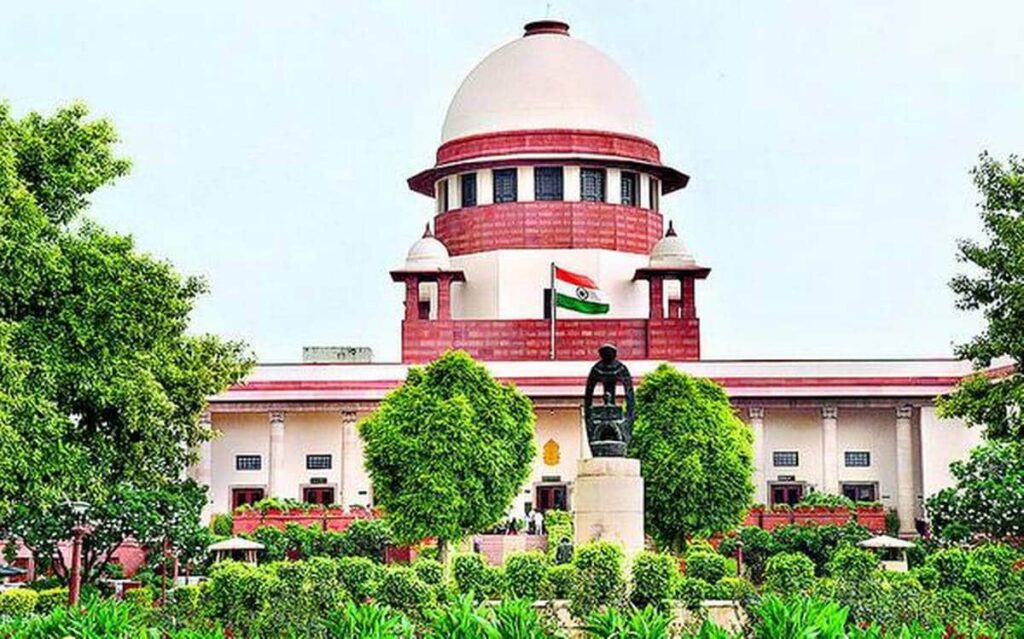The matter of maintenance of divorced Muslim woman reached the Supreme Court

A Muslim man has approached the Supreme Court challenging the court’s direction to grant interim maintenance to his divorced wife. During the first hearing, the Supreme Court has agreed to consider this legal point and the question whether a Is the Muslim woman entitled to maintain her petition under Section 125 of the CrPC?
A bench of Justices BV Nagarathna and Augustine George Masih recently heard a case challenging a family court order. In this, a Muslim woman filed a petition under Section 125 of the CrPC, demanding maintenance from her husband. The petitioner has appealed to the court to direct her husband to pay an interim maintenance allowance of Rs 20 thousand per month.
This order of the family court was challenged in the Telangana High Court. It was said there that the parties had taken divorce in 2017 as per Muslim Personal Law. There, the Supreme Court restored the order of the Family Court in 2013, in which a divorced Muslim woman was entitled to maintain a petition under Section 125 of CrPC for maintenance.
But in 2019, Justice Ahsan Amanullah, as a Patna High Court judge, quashed the family court order rejecting a Muslim woman’s plea for maintenance. Justice Amanullah then said that the Muslim woman had no rights under the 1986 Act. Besides, there was also an option to apply for maintenance under CrPC.
If she had been on the legal path under the Penal Code, it cannot be said that she was deprived of the law because she was a divorced Muslim woman.
The petitioner woman was ordered to pay fifty percent of the outstanding amount by January 24, 2024 and the remaining by March 13, 2024. Apart from this, the Family Court was asked to try to dispose of the main case within 6 months. The petitioner husband approached the Supreme Court and argued that a divorced Muslim woman is not entitled to file a petition under Section 125 of the CrPC. He will have to proceed under the provisions of the Muslim Women (Protection of Rights on Divorce) Act, 1986. They insist that as far as maintenance relief is concerned, the 1986 law is more beneficial for Muslim women.
On the basis of these facts, the petitioner claims that he had paid Rs 15,000 as maintenance to his divorced wife during the period of Iddat i.e. the prescribed period of solitary confinement after divorce or separation i.e. 90 to 130 days. He has filed a complaint under Cr.P.C. He also challenged his divorced wife’s action of approaching the Family Court under Section 125 of the CrPC on the ground that both of them had not submitted any affidavit preferring CrPC provisions over Section 5 of the Muslim Women’s Rights on Dissolution of Marriage Act, 1986. .
After hearing these arguments, the Supreme Court appointed senior advocate Gaurav Aggarwal as amicus curiae i.e. amicus curiae to assist the court. Now this matter will be heard next week on 19 February 2024. The court has listed it for consideration. The roots of this issue are also related to the case of Shah Bano Begum which came to the Supreme Court in 1985. Then the Supreme Court had given a historic verdict in the Mohammad Ahmed Khan vs. Shah Bano Begum case. At that time, the Constitution Bench of the Supreme Court had said in a unanimous decision that Section 125 of CrPC is a secular provision. This also applies to Muslim women. However, this decision was not well accepted by some sections of the society and it was seen as an attack on religious, personal laws.
This uproar resulted in an attempt to nullify the decision through the enactment of the Muslim Women Act, 1986, which limited Muslim women’s right to maintenance after divorce to 90 days. The constitutional validity of this Act was challenged. In 2001, the challenge was brought before the Supreme Court in the case of Daniel Latifi and others vs Union of India. The Court upheld the validity of the special law, however, clarified that it was the duty of a Muslim husband to pay maintenance to a divorced wife under the 1986 Act. The liability is not limited to the Iddat period.
A few years later, in the case of Iqbal Bano vs. State of UP, and Others (2007), the Supreme Court held that no Muslim woman could maintain a petition under Section 125 of the CrPC. Two years later, in the Shabana Bano vs. Imran Khan case, another bench of the Court held that even if a Muslim woman had If a Muslim woman is divorced, she will be entitled to claim maintenance from her husband under Section 125 of CrPC after the expiry of the Iddat period. Unless she remarries. Subsequently, in Shamima Farooqui v. Shahid Khan (2015), the Supreme Court reinstated a Family Court order holding a divorced Muslim woman entitled to maintain a Section 125 CrPC petition for maintenance.




